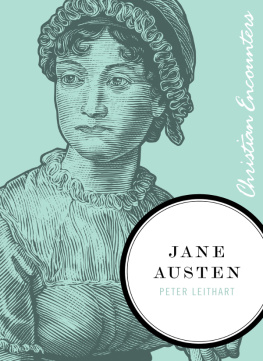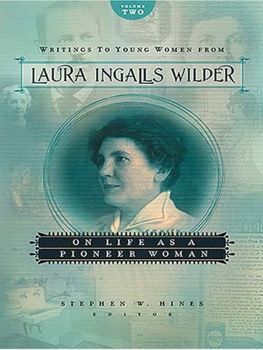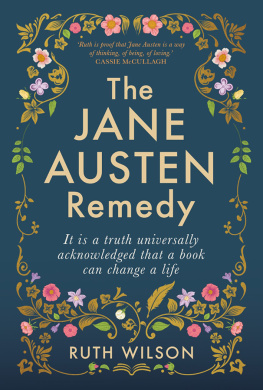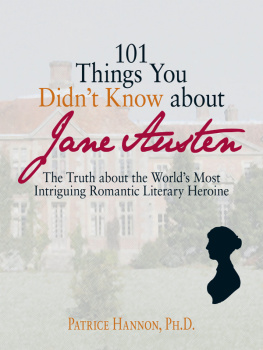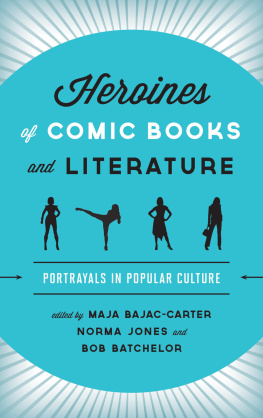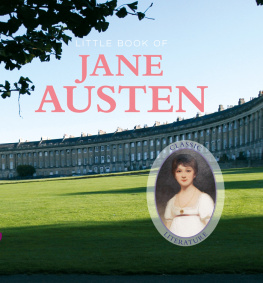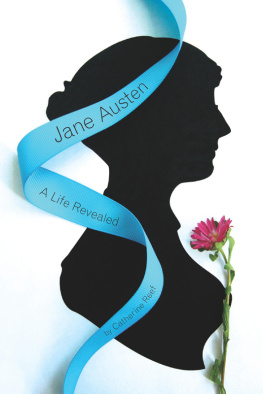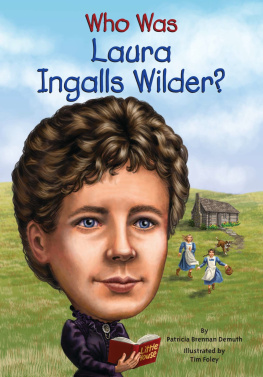In times of struggle, there are as many reasons not to read as there are to breathe. Dont you have better things to do? Reading, let alone rereading, is the terrain of milquetoasts and mopey spinsters. At lifes ugliest junctures, the very act of opening a book can smack of cowardly escapism. Who chooses to read when theres work to be done?
Call me a coward if you will, but when the line between duty and sanity blurs, you can usually find me curled up with a battered book, reading as if my mental health depended on it. And it does, for inside the books I love I find food, respite, escape, and perspective. I find something else, too: heroines and authors, hundreds of them, women whose real and fictitious lives have covered the terrain I too must tread.
Oh, have I needed some heroines in my life.
I needed them when I was eleven years old and my parents had become strangers, my body was going psycho, and my friends had turned into evil junior-high aliens. I needed them when I was adrift in college, unsure of my place in a new city and among new ideas. I need them now as I stand up to big decisions about family, career, what to eat for breakfast. Fortunately, theyve lined up on my bookshelf, patiently waiting for me to read and rediscover their stories. Theyve been there all along, pegging away at their sewing like Jo March, carrying hods of coal like Sara Crewe, breaking trails through thick snow and bitter circumstance like Laura Ingalls. Some were conceived of two hundred years ago, but the track marks they left on the road are surprisingly fresh. Theyve been there for me through everything adolescence and adulthood have lobbed my way. Theyre there for you, too, should you choose to acknowledge them.
Im not the only person I know who condescends to dive into mere childrens literature (as some have called it) when called to face down adulthood. In winter 2008, as I contemplated my favorite heroines takes on financial hardship in the face of a crushing recession, I started to talk to my friends about reading, even the ones who long ago traded screens for pages and BlackBerries for actual conversations. Reading, it seemed, was catching. All at once we were feverishly revisiting books we had neglected for years. Snowbound, edgy, kept inside by colds and coughs and frugality, we turned toward known literary quantities. And the familiar women we found pressed inside the coversAnne Shirley, Jane Eyre, Scout Finchhad much to add to stories we already knew backward and forward and lessons to impart that may have eluded us when we read them in earlier years. Reading and rereading became a system of emotional mile markers, a you are here to reference as we prepared to travel heroines paths.
These paths were not easy ones. As women, we are the protagonists of our own personal novels. We are called upon to be the heroines of our own lives, not supporting characters. We wake up with tasks to do. Sometimes theyre mundanePa wants us to stomp down some hay before the winter comes. Sometimes theyre uglyits time to walk away from the man who conveniently neglected to inform us of that woman hes had locked up in the attic for the past decade. Sometimes theyre scarya sister lies on her deathbed as a father struggles in a distant hospital.
If youre anything like me, youll falter and balk at these tasks, these markers of a heroines path. Luckily, were not required to be brave to be heroines all we have to do is show up for our own stories. Even if the reality is less glamorous than fiction (my inner heroine, for example, sometimes struggles to change out of her workout clothes or make her bed like a grown-up), even when it feels impossible to tap into a spirit thats bigger and better than you, but IS you, were called upon to lead big, sloppy, frustrating lives.
Luckily, the road ahead has been traveled before, trudged through by heroines with singed hems and snow-clotted boots. Our favorite authors and their plucky protagonists have much to teach in times of strife, even when our own heroic spirits have been dampened and deflated. A bit of literary intervention can give your inner heroine the guts she needs to keep pedaling when the entire concept of fitness seems daunting, to confront a disrespectful supervisor or survive formative and miserable life crucibles like childbirth or end-of-life care. Literary heroines face things like judgmental neighbors and bumbling proposals of marriage with aplomb. And they were given these qualities by women writers, some long-dead, real women with bills to pay, relatives to appease, children to feed and educate, and selves to discover. Just like you.
Wait, you say. The kids are crying, the phone is ringing, and Im dead tired from putting in my hour on the elliptical. My mom has cancer, and Ive got a headache; what if its a tumor? I cant handle being asked to do one more thing, ever. Surely I have nothing to give to a book. And a book cant possibly have anything to give to me.
I am here to posit that its exactly in these moments of struggle and stress that we need books the most. Theres something in the pause to read thats soothing in and of itself. A moment with a book is basic self-care, the kind of skill you pass along to your children as you would a security blanket or a churchgoing habit. Its a pair of glasses you let sit on your nose for a few stolen hours, coloring your familiar living room and the blustery world outside with the lens of another womans experience. Its a familiar book, rediscovered and dusted off, cracked open at random until youre sucked in again. It reads differently at different junctures in your life, but thats part of the fun. Time travel, redemption, escape, and self-knowledge are all neatly bound and sewn into the modest covers of the books we pass from hand to hand, library to purse, mother to daughter, where heroines lessons live long after theyve gone out of print or disintegrated from love and wear.
As an inveterate, useless, cranky, committed, and unabashed bookworm, Ive had ample opportunity to call on the lives of the heroines as I negotiate my own path. At the darkest times of my life, Ive turned to the books that are my oxygen. I was a freaky, hyperactive, and hyperbolic child, a kid who needed more friends than she was dealt. And I found them pressed into the pages of lopsided library books and the cheaply bound novels I hoarded my allowance to buy at the school book fair. I read standing up and lying down, in secret and during loud public gatherings. Others obsessed about painting their toenails in two strokes instead of three or spent their time teasing their bangs into the perfect late 1980s fall-with-pouf. Meanwhile, I laced up my inner corset and tackled the harsh world of unforgiving moors and unrelenting stepmothers.
My literary companions would never live in the ranch house with the atrocious rust-red carpet my parents couldnt afford to replace, but no matter. They accompanied me to my first kiss and my first breakup, through college and into the weird uncharted territory of quarterlife crisis and grown womanhood. Somehow, painfully, I came closer to myself with every book I read, evenespeciallythe ones that took place in far-off and inaccessible lands.
This wasnt as much about becoming a clich or a walking ad for libraries as it was about getting through my life. And it still isonly now I know I wasnt the only one with a parallel existence led while sitting on schoolbuses and airplanes or standing in line at the post office. I was accompanied by thousands, millions, of other girls and women like me, the women who join me and these heroines and authors daily. These heroines had much to teach when we were girls bursting out of ourselves, and they have even more to offer the women weve become: would-be heroines with the inconvenient mission of facing everything a protagonists path has in store.


